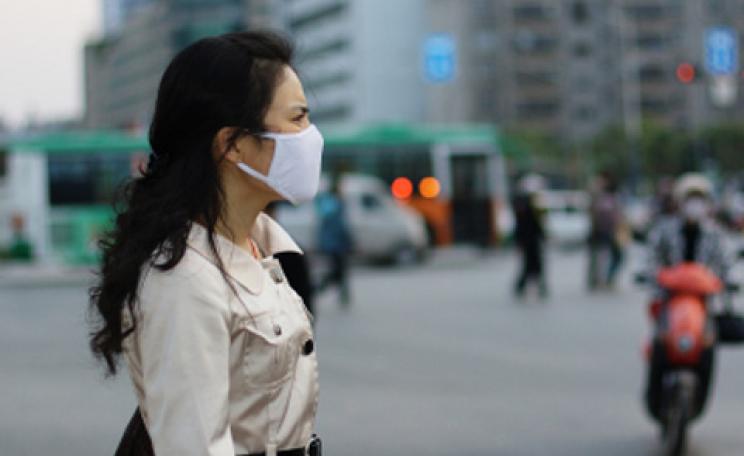“It is an unfortunate fact that breathing clean air, the most basic of human needs, has become a luxury in many parts of the world."
Air pollution from the burning of fossil fuels by vehicles and industry reduces lives by two years on average, according to research from the Energy Policy Institute at the University of Chicago.
In India and China - and other worst effected regions – people's lives are being cut by six years. This makes air pollution the single biggest threat to human health, more than smoking and Aids.
Michael Greenstone, the director of the Energy Policy Institute at the University of Chicago, who led the work, said: “While people can stop smoking and take steps to protect themselves from diseases, there is little they can individually do to protect themselves from the air they breathe."
Fossil fuel
Air pollution is also at the top of the agenda of the World Health Organisation. “We’re here to talk about both the problems as well as the solutions to this global health issue,” declared director general of the WHO Tedros Adhanom Ghebreyesus as he opened the first global summit to tackle the issue of air pollution.
More than 600 government representatives and health experts from at least 89 different countries have gathered to discuss what the head of WHO has labeled “the new tobacco”.
Worldwide, the WHO estimated that seven million premature deaths are linked to air pollution every year, of which nearly 600,000 are children.
Children are uniquely vulnerable to the damaging health effects of air pollution, the new WHO report finds. An estimated 93% of all children in the world under five years are exposed to levels of fine particulate matter (PM2.5) that are higher than the WHO air quality guideline levels.
In regions such as Africa and the Eastern Mediterranean, this goes up to 100 percent of all children under 5 years.
The air pollution that affects our health is primarily derived from fossil fuel combustion, industrial processes, waste incineration, agricultural practices,states the report, entitled Air Pollution and Child Health.
Solutions Abound
“It is an unfortunate fact that breathing clean air, the most basic of human needs, has become a luxury in many parts of the world. But there are numerous tried and tested solutions that we can put in place now to solve this problem,” declared Erik Solheim, head of UN Environment, during the first day of the conference.
In a solutions report to be launched at the Summit, entitled Air Pollution in Asia and the Pacific: Science-based Solutions, a series of 25 measures will be proposed that could drastically help reduce the rampant air pollution across much of Asia and the Pacific.
Many of the proposed solutions to tackle global air pollution require a strong control of emission that lead to the formation of fine particulate matter (PM2.5). This includes activities such as increasing emission standards and controls on vehicles, power plants, and large- and small-scale industry.
Further air pollution measures should also include reducing the burning of agricultural and municipal solid waste, preventing forest and peatland fires, and proper management of livestock manure.
Reducing air pollution also has direct benefits for tackling climate change: Implementing the 25 measures proposed at the summit would result in a 20 percent reduction in carbon dioxide and a 45 percent reduction in methane emissions, preventing up to a third of a degree Celsius in global warming.
“[It is] clear that there are big “cobenefits” of the actions that we need to stay below 1.5C warming. The faster we cut emissions of carbon into the atmosphere, the more lives we can save from reducing air pollution, which currently causes 1 in 9 deaths globally,” explained Diarmid Campbell-Lendrum, the climate change lead at WHO.
This Author
Arthur Wyns is a tropical biologist and science journalist who writes about climate change, environment and migration. He reports from the UN negotiations and is the program manager of Climate Tracker, an organisation supporting environmental journalists worldwide to bring climate change into their national debates. Arthur tweets from @ArthurWyns






